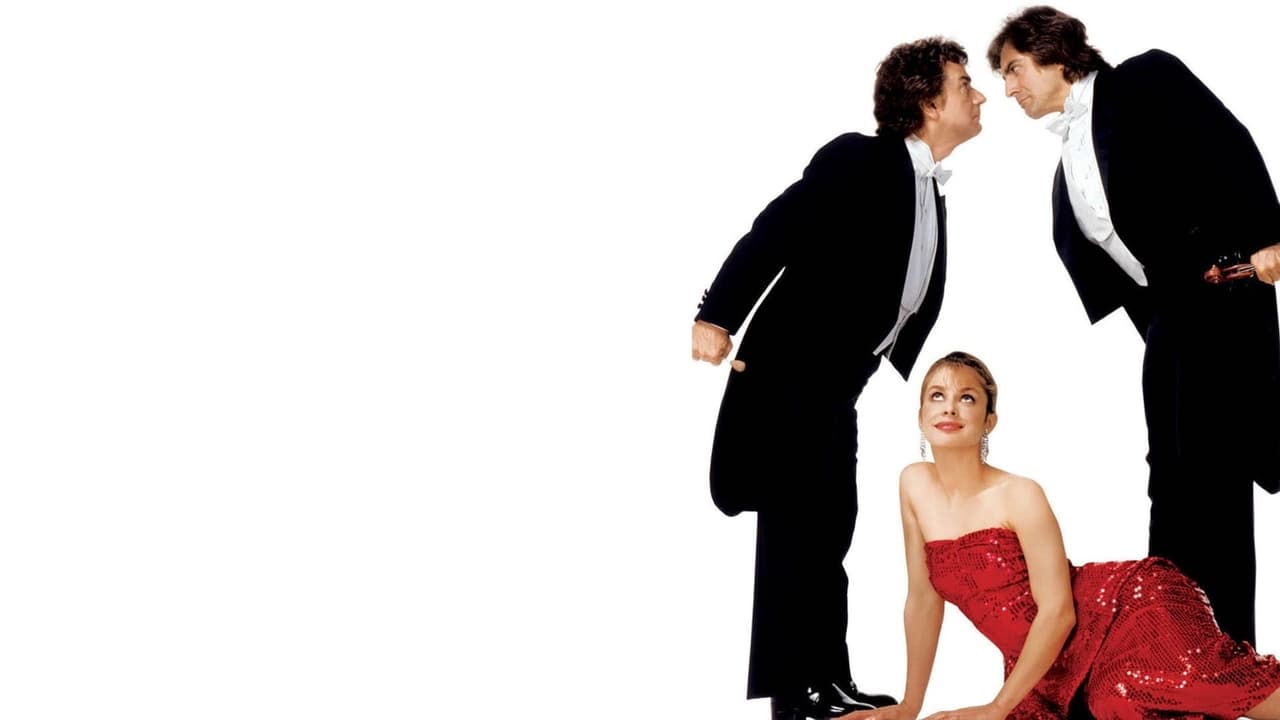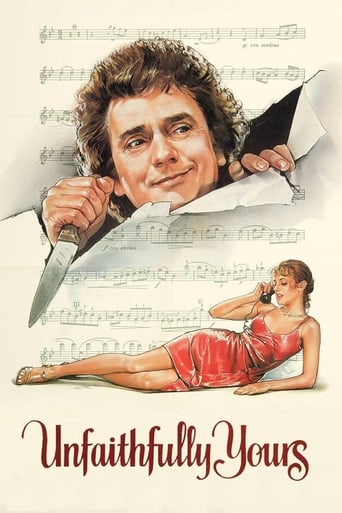

brilliant actors, brilliant editing
... View MoreExcellent characters with emotional depth. My wife, daughter and granddaughter all enjoyed it...and me, too! Very good movie! You won't be disappointed.
... View MoreThis film is so real. It treats its characters with so much care and sensitivity.
... View MoreClose shines in drama with strong language, adult themes.
... View MoreEven for a throwaway comedy like this one, it is difficult to accept that a double murder attempt only foiled by the perpetrator's ineptitude is a) funny, b) would be dismissed by all who are aware of it, including the victims, as an innocent mistake that anybody could have made and that should go unpunished by law.
... View MoreNot bad for a remake. The central character is altered to suit Dudley Moore instead of Rex Harrison. Harrison was more suave. This script has Moore doing a variation of his stone roles in "Ten" and "Arthur." He gets bombed on tranquilizers during the climactic act-out and stumbles into walls and broom closets, detracting a bit from whatever sophistication the original had but making this version no less amusing.The plot. Dudley Moore is a celebrated orchestra conductor. A series of mistakes leads him to conclude that his wife, Nastasja Kinski, is having an affair with a man who wears argyle socks. There is a furious search for argyle socks, with Moore ducking under the tables of fancy restaurants to check the socks worn by his companions. It's an old scene, this ducking under restaurant tables, but Moore pulls it off as well as anyone could. The only argyle socks he can find are those worn by his friend, the violinist Armand Assante.Moore concocts a scheme to kill his wife and frame the violinist for the murder. The scheme isn't so much improbable as it is impossible, but it's funny enough in fantasy. When Moore tries to pull it off, everything goes wrong, of course, and the movie more or less collapses into frenzy.Moore is good at these kinds of roles. God knows he's had enough practice. And he's a likable chap. It's difficult to envision him in an action movie -- "My Knife Is Quick", or something. Armand Assante is fine in a comedy. The first impression he makes is one of beefy, self-confident masculinity, but he's quite good in comic roles and is capable of self ridicule in a way that, say, Sylvester Stallone is not. Of Nastassja Kinski, what is there to say? She's sinewy, stunningly beautiful, more animated than usual, and edible.Not a masterpiece but enjoyable.
... View MoreMoore is a symphony conductor who believes his wife is cheating on him with fellow musician Assante. During a performance he devices a plan to get rid of them both. All works perfectly in his mind, but the execution is another matter indeed.Simply hilarious at times, this remake of the 1948 original benefits hugely from an extremely appealing cast and witty script. Even Albert Brooks, who's usually rather tiresome, is very funny as Moore's friend who accidentally sets all things in motion.These comedies that only use misunderstandings as the film's driving force are completely hit or miss. This time it's all well written and, under some unusual circumstances sure, it could happen. The ending, when Moore executes his plans, is nothing short of fantastic, he's simply at his comedic best. It's the conclusion really that misses, sort of cheap but up until then it's a lot of fun.
... View MoreThis film marks the culmination of the most prolific, popularly loved form of music that the human race ever conceived. That is, the Romantic style. You may find, for example, a CD of pianist Horowitz produced a couple of decades ago entitled "The Last Romantic" - and you might understand the sentiment behind such a title. It is a dying breed of music. Rather, it is dead. Left are museum pieces rehashed by earnest musicians who love the style, or at least the memory of it, but performed/recorded for audiences/listeners who for the most part don't understand it. For to understand it, one must absolutely not be pragmatic. And as we've all been told time and again of late, if you're not pragmatic (if you haven't gone to college, for example, in order to obtain a degree/career) you don't have a life. Few these days, not even crack dealers, are willing to trade monetary responsibility for an enhancement of their souls.Likewise, Dudley Moore acted the lead in this film, and in doing so, he didn't create much of a life, in terms of this film being appreciated by the mainstream. But Moore was one of the funniest comedians that ever graced American film/sound stages. His improvised drunk bits rival Jackie Gleason's improvised drunks. Of course nowadays such drunk humor is politically incorrect, which marks yet one more creative form that has recently bitten the dust. Oh well, at least kids are safe from drunk drivers.But the greatest moment in this movie was the violin battle. You see, it's a prerequisite for talented, narcissistic classical/Romantic musicians, such as Dudley Moore (pianist), to hold a dark sense of humor. It's the kind of passive resistant, anti-successful state of mind that made Charlie Brown, Woody Allen, Bartleby, John Lennon and countless negative/alternative reasoning popular during the 60s-70s. And that alternative culture, or revolution, was merely a revamping of an earlier, more formidable anti-capitalism known as the period when occurred the French and American revolutions. In music, this was the time of Beethoven's rise to fame. This style he and others (even Mozart to some extent) propounded is known as the Romantic style. And the single greatest musical influence upon these western European proponents of the Romantic style was the music emanating from the streets: Gypsy music. It's also important to remember that such Gypsy music was itself influenced by a combination of east European folk music and the traditional music of the middle east, an area of the world from which all western civilization is derived, and thereby for which all of us should have reverence, or at least respect.Basically what we're talking about here, what was the greatest influence upon the invention and prosperity of the Romantic music style, is the harmonic minor scale, and the claiming of this scale upon the hearts of a vast majority of music lovers world wide 1750-1980. It is a scale that gave birth to Romantic styled chromaticism, the most prolific harmonic form ever. In its early stages, when Mozart and papa Haydn dabbled in it, women and other faint hearted individuals tittered. When Beethoven got hold of it, such women literally fainted in the aisles. That's how naturally such chromaticism is capable of affecting the emotions of people. It requires an open heart, however. Today such Gypsy styled music is a laugh; that's how jaded western civilization has become. The smallest of minds are bold enough to regard it as merely "Jewish music," which informs us that its demise is likely, at least partially, the result of anti-Semitism.Such Gypsy/Jewish etc. scale's greatest instrument, or agent provocateur: the violin. Hence, the extraordinarily emotional/comedic violin battle scene in this film, a rare tribute to this dying style of music. If there are any film makers, or any creative artists, who are interested in bringing back to vitality such Romantic/Gypsy/Jewish/harmonic minor scaled music, seeing this film might give them a good start in the right direction. It should also be stated that the Gypsy music that has recently surfaced in "World Music" and in university studies of Ethnomusicology, while more authentic, has, by way of pedantically narrowing the interpretations, caused the less authentic Romantic style to be ignored in its works.
... View More